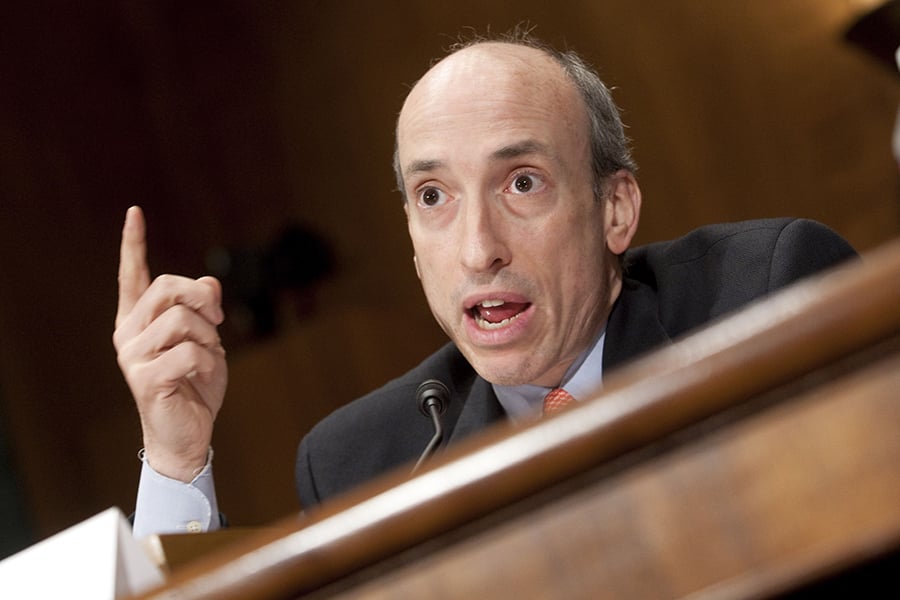

Securities and Exchange Commission Chair Gary Gensler is making it clear he’s skeptical the hundreds of investment funds that tout ESG credentials are as green or socially conscious as advertised.
On Tuesday, the Wall Street regulator posted a video on Twitter that highlights some of his top concerns.
Gensler pointed out that there’s no industry consensus on what environmental, social and governance investing means. He questioned whether firms are adhering to a 1940 law that requires fund names to match what they invest in. And he noted that unlike many high-yield bond funds, ESG offerings don’t publish debt ratings that back up their labels.
“When I think about these questions, I’m reminded of walking down the aisle of a grocery store and seeing a product like fat-free milk,” Gensler said. “In that case, you can see objective figures, like grams of fat, which are detailed on a nutrition label. Investors should be able to drill down and see the ingredients underlying these funds.”
The video is Gensler’s latest attempt to clamp down on so-called greenwashing, in which money managers improperly market funds as ESG. He reiterated that the SEC is working on a rule that would force firms to disclose the criteria and underlying data they rely on in labeling funds ESG.
[More: Are asset managers giving plain old funds a green tint?]

AI is no replacement for trusted financial advisors, but it can meaningfully enhance their capabilities as well as the systems they rely on.

Prudential's Jordan Toma is no "Finfluencer," but he is a registered financial advisor with four million social media followers and a message of overcoming personal struggles that's reached kids in 150 school across the US.

GReminders is deepening its integration partnership with a national wealth firm, while Advisor CRM touts a free new meeting tool for RIAs.

The Texas-based former advisor reportedly bilked clients out of millions of dollars, keeping them in the dark with doctored statements and a fake email domain.

The $3.3 trillion tax and spending cut package narrowly got through the upper house, with JD Vance casting the deciding vote to overrule three GOP holdouts.
Orion's Tom Wilson on delivering coordinated, high-touch service in a world where returns alone no longer set you apart.
Barely a decade old, registered index-linked annuities have quickly surged in popularity, thanks to their unique blend of protection and growth potential—an appealing option for investors looking to chart a steadier course through today's choppy market waters, says Myles Lambert, Brighthouse Financial.
